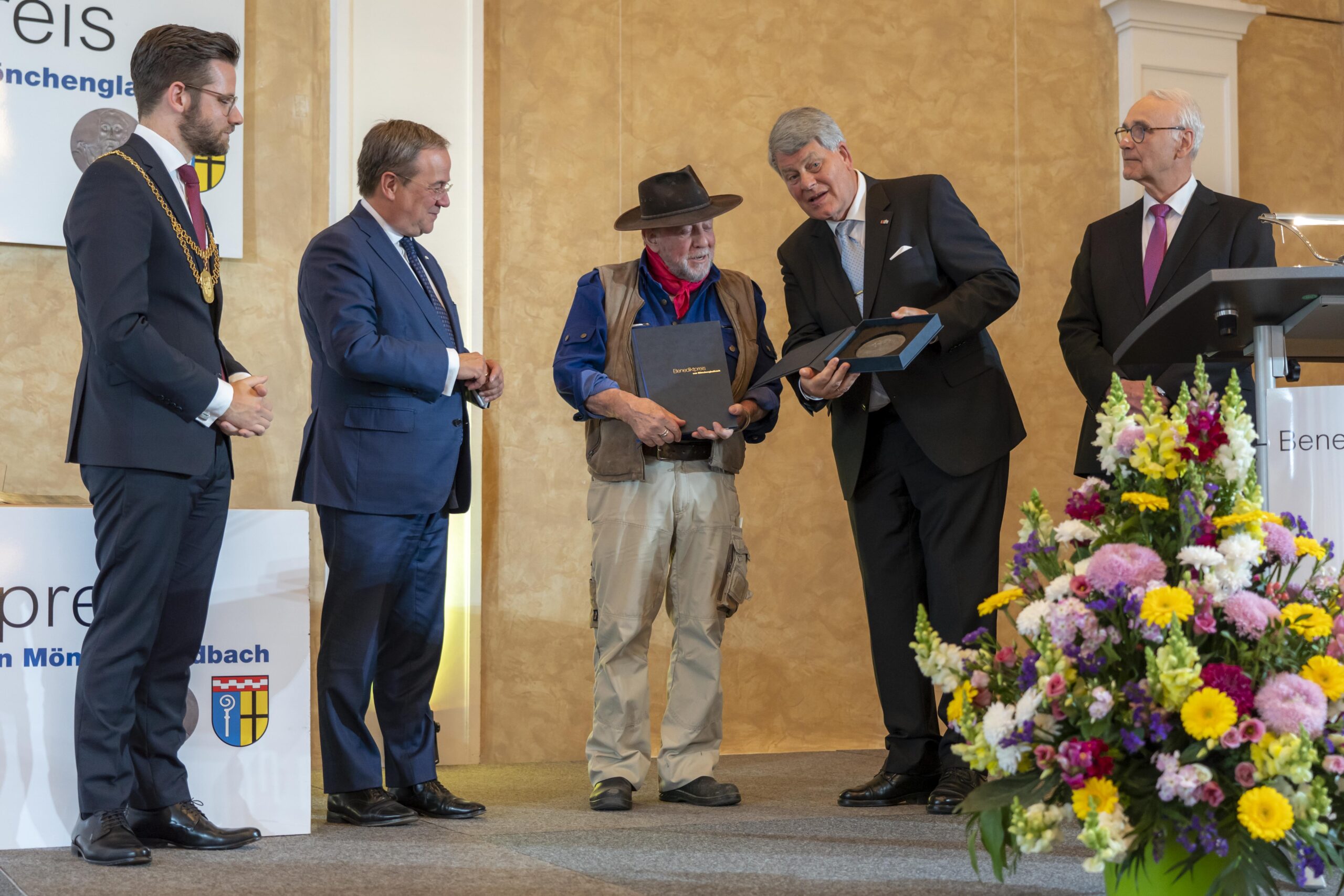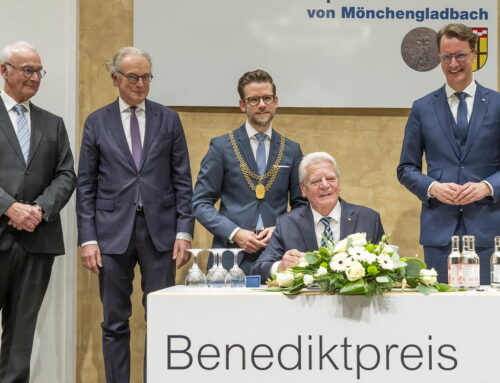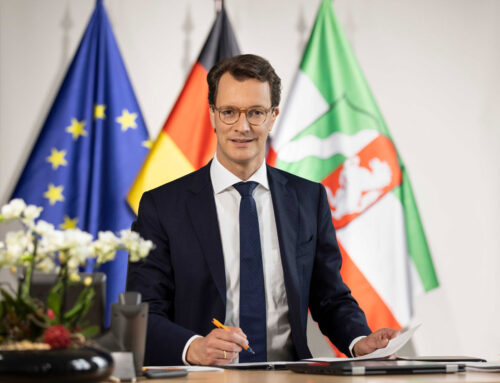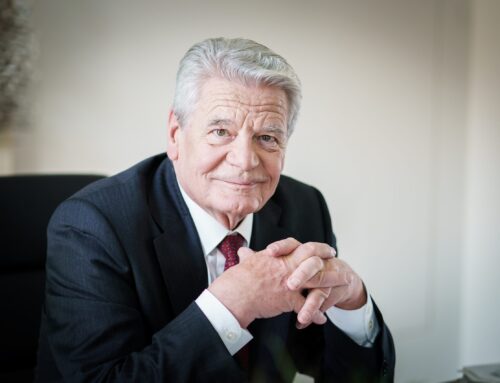The artist commemorates the victims of the Nazi dictatorship with his "Stolpersteine". For this he received one of the most important awards in the country. Shortly before the ceremony with laudator Armin Laschet, Demnig laid 17 more stones in Mönchengladbach.
Source: Rheinische Post 30 April 2022
It is the last sentence on this evening at the ceremony in Haus Erholung that says it all: "If you want to read the stones, you must inevitably make a bow to the victims," says Gunter Demnig. The artist has just received one of the most important awards of the state of NRW: the Benedict Prize of Mönchengladbach. Endowed with 5,000 euros, it goes to personalities "whose value-oriented actions stand out in a special way against the background of the Christian occidental experience".
Demnig receives the award for a project he started almost three decades ago. Throughout Europe, he commemorates the victims of the Nazi dictatorship with his Stolpersteine. At their last place of residence, he sets brass memorial stones in the pavement, thus keeping alive the memory of people who lived there before they were deported, expelled and murdered by the National Socialists.
The 74-year-old has laid almost 90,000 such memorial stones across Europe, including in Ukraine and Russia. Most of them, however, are in Germany. In Mönchengladbach alone, 317 Stolpersteine have been laid at 97 locations since 2006. Last year, a Stolperstein was laid for the first time in front of the former Jewish old people's home at Friedrich-Ebert-Strasse 82-84.
Demnig should actually have received the award in 2020. But the pandemic threw a spanner in the plans of the organisers around Helmut Linnenbrink of the association "Benediktpreis von Moenchengladbach". The award had to be postponed three times. The fourth time it worked out, said Linnenbrink, who thanked the laudator, former NRW Minister President Armin Laschet, for his "reliability and loyalty to a given promise".
Laschet used the presidential election in France as an example of how important it was to remember the crimes of that time: "It didn't take much for a right-wing populist to become president." The images of the war in Ukraine also showed "it's back". Demnig's Stolpersteine reminded people in everyday life of the horror that was possible. "You go down on your knees before the victims of National Socialism and thus open our eyes," said the laudator to the laureate.
Lord Mayor Felix Heinrichs, a member of the board of trustees led by Prof. Ulrich Kania, attested that the honoured man was "a man with attitude, conviction and courage". With his "speaking stones", Demnig encouraged people to make their mark. Kania emphasised that the artist was giving back a piece of their dignity on behalf of the millions who had not been named.
Like the family of Ernst Adler. Ernst Adler spent the first ten years of his life in the house at Schillerstraße 50, which belonged to his family until August 1936. Then, as Jews disenfranchised and persecuted by the National Socialists, they had to emigrate to England. Adler came from Boston two days ago with his wife Ilana and daughter Tahlia to see Gunter Demnig, just a few hours before the ceremony, place four memorial stones for the family in front of their former home in Mönchengladbach: one each for the parents Max and Erna Adler and for their children Ernst and Erika.
Despite jet lag, Ernst Adler is wide awake. May one ask him how old he is? "You may ask," says Adler and laughs. Later he reveals that he will be 96 in a fortnight. And: "I hope to remember the time in Mönchengladbach better when the stones are the same." Adler is also assisted by Susan Worthington, his niece from Basel. She will later give a moving eulogy for her grandfather.
Heinrichs is also present in the morning and says: "This is a special day for the city in this special place. I am filled with deep joy and gratitude to be able to welcome Ernst Adler himself." Demnig takes his time with the laying, carefully embedding the stones in different types of sand. At the same time, musician Jürgen Löschner plays old Jewish folk songs on the saxophone.
When Demnig has finished his work, Ernst Adler kneels down in front of it and reads. "All the names written correctly," he says, visibly moved. Someone places a single white rose next to the stones. Gabbai Boris Gerskovic from the synagogue prays "El Male Rachamem" in memory of the six million Jews murdered in the concentration camps. Heinrichs thanks all those who accompanied this touching laying, including Leah Floh, chairwoman of the Jewish Community and representatives of the Society for Christian-Jewish Cooperation. Ernst Adler and his family want to spend
o spend a few more days in the Rhineland. Then they will return to Boston and Basel.
At the ceremony, he and his family sit in the front row at the awarding of the Benedict Prize of Mönchengladbach. Surrounded by around 200 invited guests. Among them are Sabine Leutheusser-Schnarrenberger, the state's anti-Semitism commissioner, Carina Gödecke, vice-president of the state parliament, Christoph Dammermann, state secretary, and numerous city celebrities.
Source: Rheinische Post 30 April 2022





